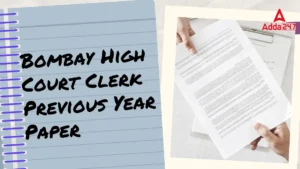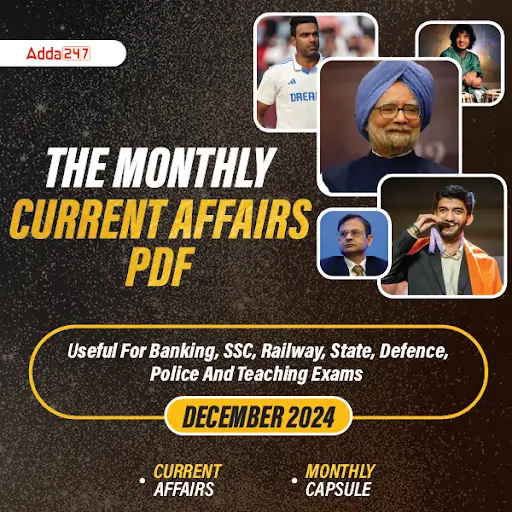Dear Aspirants,
Reasoning Section can make or break one’s chances to ace any banking examination. Practising with sample questions is an onerous task for that’s the only key to ace this section of competitive exams. The IBPS Clerk Mains Exam is scheduled to be held on the 20th of January 2019. Adda247 is here with “Practice Marathon for Clerk Mains 2018” with practice questions on all the topics that are likely to be asked in the exam. Today is Day 9 of IBPS Clerk Mains Practice Marathon, attempt this Reasoning quiz and win the marathon against lakhs of IBPS Clerk Candidates.
Directions (1-5): Study the following information carefully and answer the question given below-
Eight persons i.e. A, B, C, D, U, V, W, and X are seating in two parallel rows. U, V, W, and X are seating in row 1 and facing towards North. A, B, C, and D are seating in row 2 and facing south. They all go for a vacation in four different months of the same year from January to April (not necessarily in same order) on dates i.e. 22, 18 of every given month. Only 1 person goes on each day. Each person of row 1 faces the person of row 2.
U faces the person who is an immediate neighbour of C. U goes for a vacation in April. X is not an immediate neighbor of U in seating arrangement. Only one person goes for a vacation between U and D. A goes for a vacation in March. Only one person goes for a vacation between C and V. The one who goes for a vacation on 18th January is not an immediate neighbour of X. D doesn’t go for a vacation in January and B doesn’t go for a vacation in April. U goes for a vacation before X. No two persons can sit adjacent to each other who go for a vacation in same month except the persons who go for a vacation in March. The persons who go on February don’t sit at extreme end. C goes for a vacation on 18th February and sits second to the left of D V is not an immediate neighbour of the one who goes for a vacation on February.
Q1. U goes for a vacation on which of the following date?
22nd April
18th March
22nd March
18th April
None of these
Q2. The one who goes on 22nd February faces which of the following person?
D
A
C
B
None of these
Q3. Who among the following goes for a vacation on 18th March?
A
D
C
B
None of these
Q4. Who among the following sits immediate left of the one who goes for a vacation on 22nd April?
C
V
U
None of these
W
Q5. Who among the following faces D?
W
X
U
V
None of these
Directions (6-10): Following questions are based on the five three-digit numbers given below:
853 581 747 474 398
Q6. If all the digits in each of the numbers are arranged in descending order within the number, which of the following will form the lowest in the new arrangement of numbers?
853
581
747
398
474
Solution:
474
Q7. If all the numbers are arranged in ascending order from left to right, which of the following will be the sum of all the three digits of the number which is exactly in the middle of the new arrangement?
17
15
14
13
19
Solution:
(5 + 8 + 1) = 14
Q8. What will be the resultant of third digit of the lowest number is multiplied with the second digit of the highest number?
27
40
20
45
19
Solution:
8 * 5 = 40
Q9. If the positions of the second and the third digits of each of the numbers are interchanged, how many even numbers will be formed?
None
One
Two
Three
Four
Solution:
Two
Q10. If one is added to the first digit of each of the numbers, how many numbers thus formed will be divisible by three?
None
One
Two
Three
Four
Solution:
Two
Directions (11-13): In each of the following questions, two statements numbered I and II are given. There may be cause and effect relationship between the two statements. These two statements may be the effect of the same cause or independent causes. These statements may be independent causes without having any relationship. Read both the statements in each question and mark your answer as:
Q11. I. It is the aim of the city’s civic authority to get the air pollution reduced by 20% in the next two months.
II. The number of asthma cases in the city is constantly increasing.
If statement I is the cause and statement II is its effect;
If statement II is the cause and statement I is its effect;
If both the statements I and II are independent causes;
If both the statements I and II are effects of some common cause.
If both the statements I and II are independent causes
Solution:
The increase in number of asthma cases must have alerted the authorities to take action to control air pollution that triggers the disease.
Q12. I. The police authority has recently caught a group of house breakers.
II. The citizens group in the locality has started night vigil in the area.
If statement I is the cause and statement II is its effect;
If statement II is the cause and statement I is its effect;
If both the statements I and II are independent causes;
If both the statements I and II are effects of some common cause.
If both the statements I and II are independent causes
Solution:
Both the statements are clearly backed by a common cause, which is clearly an increase in the number of thefts in the locality.
Q13. I. The university authority has instructed all the colleges under its jurisdiction to ban use of all phones inside the college premises.
II. Majority of the teachers of the colleges signed a joint petition to the university complaining the disturbances caused by cell phone ring-tones inside the classrooms.
If statement I is the cause and statement II is its effect;
If statement II is the cause and statement I is its effect;
If both the statements I and II are independent causes;
If both the statements I and II are effects of some common cause.
If both the statements I and II are independent causes
Solution:
Clearly, the university’s decision came as a sequel to the complaint received by it from the college teachers against use of mobile phones in the college premises.
Directions (14-15): Each question given below consists of a statement, followed by three or four arguments numbered I, II, III and IV. You have to decide which of the arguments is/are ‘strong’ argument(s) and which is/are ‘weak’ argument(s) and accordingly choose your answer from the alternatives given below each question.
Q14. Statements:
Should all the indirect taxes in India be combined into a single tax on all commodities?
Arguments:
I. Yes. This will considerably simplify the tax collection mechanism and the cost of collecting tax will also reduce.
II. Yes. The manufacturers and traders will be benefited by this which in turn will boost tax collection.
III. No. No other country has adopted such system.
None is strong
Only I and III are strong
Only II is strong
Only II and III are strong
None of these
Solution:
Only I and II are strong.
Clearly, Both I and II hold strong, as they provide very convincing reasons, for a single tax system would help get rid of multifarious taxes on a product. Besides, the idea of imitation of other countries in the implementation of a certain policy holds no relevance. So, argument III does not hold strong.
Q15. Statements:
Should trade unions be banned completely?
Arguments:
I. Yes. Workers can concentrate on production.
II. No. This is the only way through which employees can put their demands before the management.
III. Yes. Employees get their illegal demands fulfilled through these unions. IV. No. Trade unions are not banned in other economically advanced countries.
Only I is strong
Only II is strong
Only I and II are strong
Only I, II and III are strong
None of these
Solution:
Clearly, trade unions provide a common platform for the workers to voice their demands and protests and thus ensure that they are not subdued or exploited. So, argument II holds strong, while I and III do not. Besides, the idea of imitation of other countries in the implementation of a certain policy, holds no relevance. So, argument IV also not hold strong.






 The Hindu Review October 2022: Download ...
The Hindu Review October 2022: Download ...
 Bombay High Court Clerk Previous Year Pa...
Bombay High Court Clerk Previous Year Pa...
 34300+ Vacancies in Government Organisat...
34300+ Vacancies in Government Organisat...





